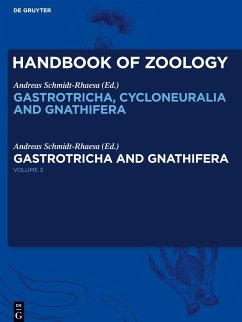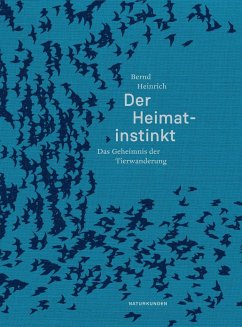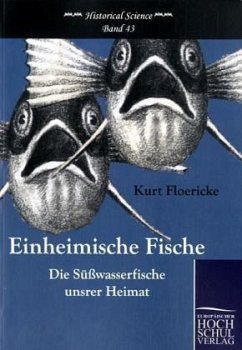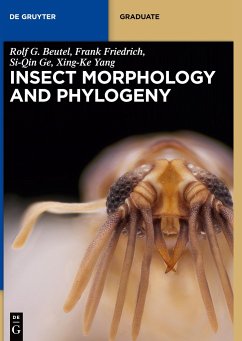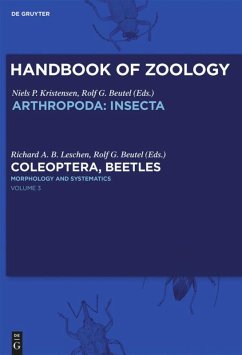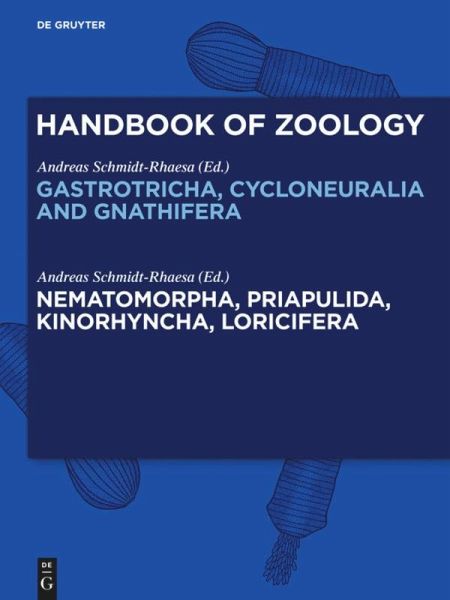
11
Versandkostenfrei!
Versandfertig in 6-10 Tagen
174,99 €
inkl. MwSt.

PAYBACK Punkte
87 °P sammeln!
This section of the Handbook of Zoology is intended as a comprehensive and exhaustive account of the biology of the taxa Gastrotricha, Nematoda, Nematomorpha, Priapulida, Kinorhyncha, Loricifera, Gnathostomulida, Micrognathozoa, Rotifera, Seisonida and Acanthocephala, covering all relevant topics such as morphology, ecology, phylogeny and diversity. The series is intended to be a detailed and up-to-date account of these taxa. As was the case with the first edition, the Handbook is intended to serve as a reliable resource for decades.Many of the taxa of this volume are comparatively unknown to ...
This section of the Handbook of Zoology is intended as a comprehensive and exhaustive account of the biology of the taxa Gastrotricha, Nematoda, Nematomorpha, Priapulida, Kinorhyncha, Loricifera, Gnathostomulida, Micrognathozoa, Rotifera, Seisonida and Acanthocephala, covering all relevant topics such as morphology, ecology, phylogeny and diversity. The series is intended to be a detailed and up-to-date account of these taxa. As was the case with the first edition, the Handbook is intended to serve as a reliable resource for decades.
Many of the taxa of this volume are comparatively unknown to many biologists, despite their diversity and importance for example in meiofaunal communities (Gastrotricha, Rotifera, Gnathostomulida), their fascinating recent discoveries (Loricifera and Micrognathozoa), their importance as parasites (many nematodes, Nematomorpha, Acanthocephala) and their importance for evolutionary questions (e.g. Priapulida, Gastrotricha). The groups covered range from those poor in species (such as Micrognathozoa with 2 known species) to the species-rich and diverse Nematoda and their ca. 20.000 described species. While each taxon is covered by one chapter, nematodes are treated in several chapters dedicated to their structural, taxonomic and ecological diversity.
Many of the taxa of this volume are comparatively unknown to many biologists, despite their diversity and importance for example in meiofaunal communities (Gastrotricha, Rotifera, Gnathostomulida), their fascinating recent discoveries (Loricifera and Micrognathozoa), their importance as parasites (many nematodes, Nematomorpha, Acanthocephala) and their importance for evolutionary questions (e.g. Priapulida, Gastrotricha). The groups covered range from those poor in species (such as Micrognathozoa with 2 known species) to the species-rich and diverse Nematoda and their ca. 20.000 described species. While each taxon is covered by one chapter, nematodes are treated in several chapters dedicated to their structural, taxonomic and ecological diversity.





